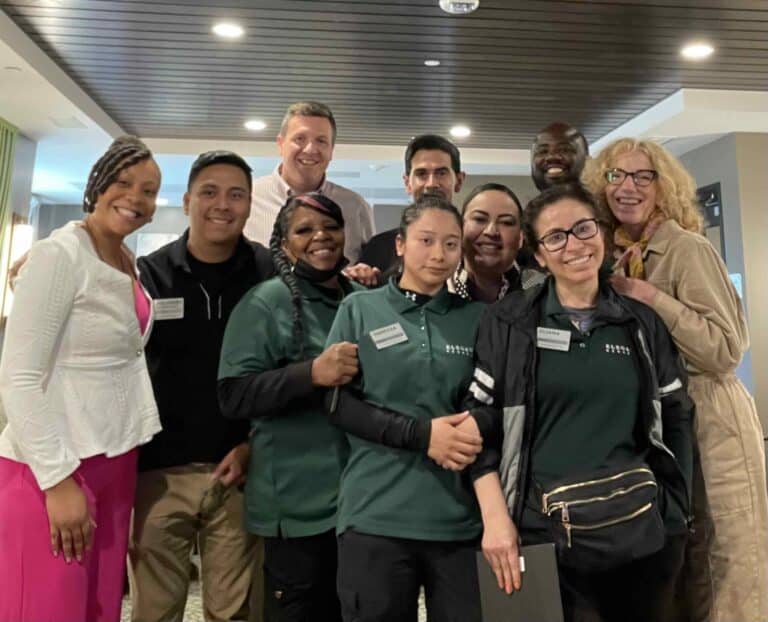It is National Counseling Awareness month. Here at Burnalong, we want to do our part to raise awareness by informing you of how to find a good counselor and questions you should ask when choosing.
Starting therapy can be daunting (but it doesn’t have to be!) The thing is, when it comes to finding a therapist—just like with dating—you deserve to know what you’re getting yourself into. The process isn’t always intuitive, and looking for the right resources and questions to ask is a great first step!
It is more than OK to set up an initial 15-minute call with a potential therapist and ask questions about the person’s professional background, your treatment, and any and all concerns you have about the mental health services you’ll be receiving.
How to find a good counselor: 4 common questions to ask
Here are some of the most common questions that you can ask your potential therapist in your first 15-minute phone consultation so you feel prepared and comfortable in navigating your new relationship!
1) Make Sure Their Schedule Works For You
The first question you should ask your potential therapist is what does their schedule looks like. If you can only see them on weekends or evenings after work – you should make sure that their schedule aligns with your needs.
2) Does the Counselor Have Experience Working With Different Identity and Issue Factors
The second question that should be asked is what kind of experiences they have with different issue factors or identity factors.
Do they have experience with members of the LGBTQ+ community, or stay-at-home moms? What experience do they have with anxiety or trauma or eating disorders? It is important that your counselor understands and has experiences with the things that are currently troubling you.
Remember that according to the Department of Labor’s Bureau of Labor Statistics (BLS), there are more than 577,000 mental health professionals practicing in the U.S. today. If this person doesn’t fit your needs, someone else will!
3) Get a Feel For Their Practice Style and a Typical Session
The third question that is important to ask is “in terms of your approach what does a typical session look like?” By asking the question in this way they won’t use big counseling language that you may or may not understand.
It should give you a good sense of: is this person active, or passive? Do they ask questions? Do they challenge? Do they sit back? Are you expected to lead or are they going to lead?
These are all things that you should know before you go in, so it can match your comfort level!
4) Determine Whether This is a Long Term or Short Term Relationship
The fourth question is to ask if they see clients in the short term, long term or both. This way you know what you are getting into and can make sure it is what you are looking for! Keep in mind that even if you go into therapy thinking it will be for a certain length of time that the duration of your relationship with this therapist may go on for longer (or shorter) than you think.
Check out our webinar with mental health experts Dr. Jess Williams and Bianca Coleman for more tangible suggestions on supporting employee mental health.
Next Steps – Where Do You Go From Here?
Deciding to go to therapy can be a hard choice! You should be proud of yourself for making that first step. My hope is that these questions make the second & third step that much easier. Remember that you are the one in charge of this relationship. You deserve to ask questions and get to know them. Most importantly, if you don’t feel like they are a good fit, let them know and don’t be scared to start again! You will get the most out of therapy if you have a good relationship with your therapist.
Bonus Questions to Ask When Looking for a Therapist
Want some bonus questions to ask? We’ve got you covered:
What is your favorite form of therapy to practice? (This is a great question to find out what type of therapy this person does and what they are most comfortable with).
Based on your individual needs these questions might apply to you: Is contact in between sessions allowed? How do they typically deal with crisis or emergency situations?
Need Help Now?
If you are struggling right now, and find yourself in a crisis situation you are not alone & help is available. Here are some crisis resources that can help:
Mobile app offering discussions, recommendation, and support from like-minded people and a stigma-free environment.
Free, 24/7 text-based hotline for crisis counseling.
The National Suicide Prevention Lifeline
Free 24/7 crisis support
The Trevor Project
Crisis intervention for the LGBTQ+ community
Online crisis network with support from trained, certified volunteers.
National Eating Disorder Helpline
Contact the Helpline for support, resources, and treatment options for yourself or a loved one. Helpline volunteers are trained to help you find the information and support you are looking for. Reach out today! Call: 800-931-2237. Text: (800)-931-2237. Crisis: text NEDA to 741741





